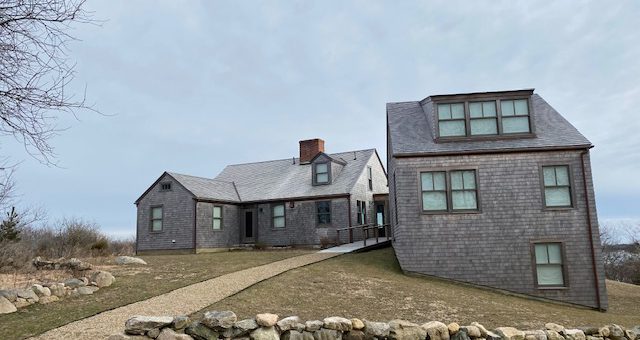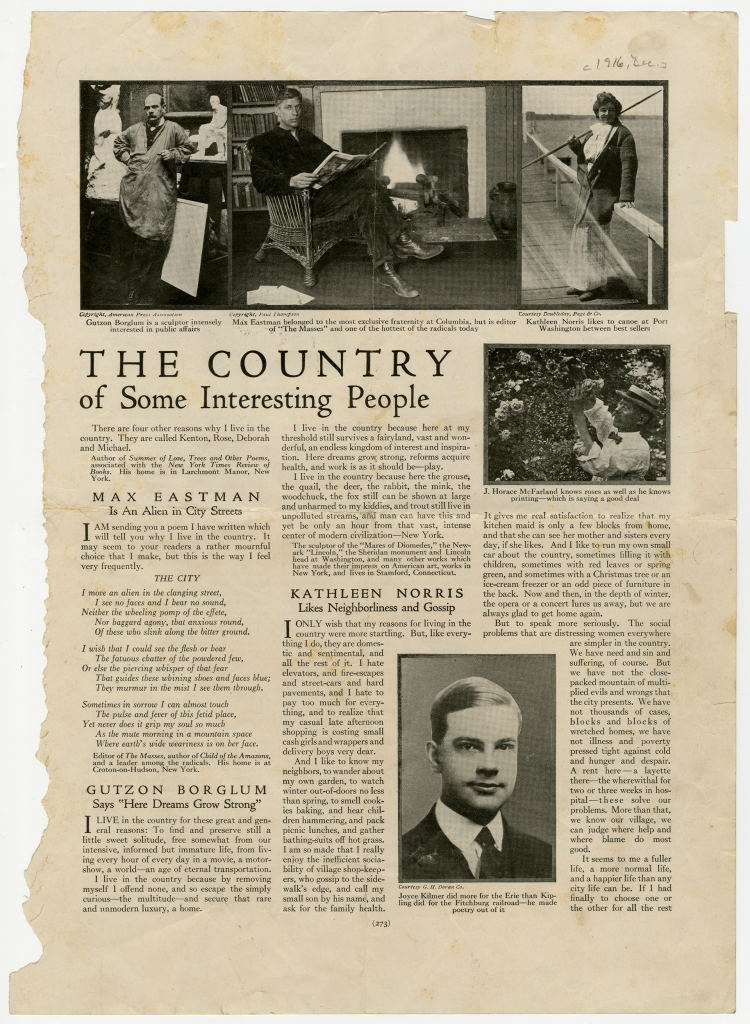
(BLOOMINGTON) – An historic Martha’s Vineyard property once owned by prolific American writer and prominent political activist Max Forrester Eastman (1883-1969) will soon be a place for Indiana University Bloomington faculty in the arts and humanities to write and create.
The house was a vibrant gathering place for innovative writers, artists, and thinkers; it will return to a space for artists, creative writers, and humanists on the Bloomington campus who may apply for an Eastman Fellowship for up to one month of residency in this quiet and serene location to complete books or other projects. In addition, the renovated house may be used for small retreats and conferences in the arts and humanities.
Over time, the university developed a close relationship with the Eastman family, including Eastman’s widow, Yvette Szekely Eastman. Upon her death in 2014, IU received the Eastman family’s property and carefully restored and renovated the house.
This historic property, which is situated at the highest point of the island, with stunning views of Menemsha Pond, Squibnocket Pond, Vineyard Sound, and Nantucket Sound, includes Eastman’s vast library, personal effects, and period furniture. The Eastman family gave it to the university for the purpose of allowing IU artists and humanists to carry on Eastman’s rich work of critically-engaged thought and expression.

Eastman’s collection was acquired by the Lilly Library starting in 1958, with further acquisitions in 1971, 1985, and 1986. In the early 20th century, he edited and wrote for a number of radical political magazines, including The Masses and The Liberator. He also campaigned for women’s suffrage and world peace. Throughout his long life, Eastman gained recognition as a poet, memoirist, biographer, and author of books on subjects ranging from humor to the scientific method to Soviet culture. His work is one of the Lilly’s most frequently consulted holdings.
Eastman Residency for the Arts and Humanities
The Eastman Residency supports faculty in the arts and humanities by providing residencies up to one month on the IU-owned Eastman property on Martha’s Vineyard. Priority will be given to faculty members on sabbatical, but all IU faculty with a clearly-defined research or creative project that would benefit from time away from campus are encouraged to apply.

Faculty members are asked to submit a proposal detailing how the residency will benefit a specific project and contribute more broadly to their work. The residency mainly supports Individual projects, but it can also be used for meetings, conferences, and group retreats of a scholarly or artistic nature.
Applications can be made to provost@indiana.edu at least six months in advance of the proposed residency.
To apply
Eligibility
All IU tenured and tenure-eligible faculty are eligible to apply. Those employed at IU but not on the tenure-track, whose evaluation criteria include research or creative activity, are eligible to submit proposals with an explanation of the importance of research or creative activity to their evaluation in the letter of support from their chair or dean.
Application Components
- Completed online application form (coming soon)
- Project narrative and residency rationale (one-two pages)
- Project timeline (one page)
- Letter of support from department chair
- Letter of support from field expert
- CV
- List of Previous Campus Awards and Funding
Requirements
Project narrative/rationale should include information about how time will spent during the residency and how applicant’s work will benefit from the setting/time away from campus. It should also outline all project deliverables and potential impacts.
Residents must plan at least one public activity during their stay on the island. These may include a reading, workshop, or open studio.
Recipients must also present their work to the campus community upon their return (via programming with the Arts and Humanities Council) and submit a final report within one month of the residency’s end.
Successful applicants are responsible for all travel arrangements. Funding to support travel, per diems, and other trip expenses are not included in the residency, but applicants are encouraged to apply to CAHI, OVPR, IAS, and other campus units to help cover these expenses.



